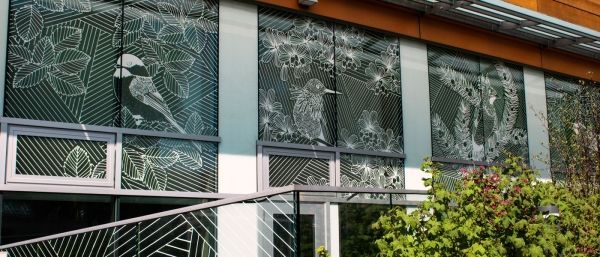The UBC Vancouver campus is host to a staggering array of birds, and spring is their season. Bird calls fill the air as thousands of songbirds and other migrating species enjoy a well-deserved layover on their bi-annual journey along the Pacific Flyway, a major migratory route extending from Alaska to Argentina. The Point Grey campus lies adjacent to the Fraser River Estuary, which serves as a crossroads and critical refuelling stop for birds from 20 countries and three continents—and many of the millions of birds it attracts each year find their way to campus.
In 2014, four UBC Vancouver students set out to discover just how the campus was impacting migrating birds—specifically, how many birds die on campus annually from colliding with buildings. An Environment and Climate Change Canada study released in 2013 ruffled feathers with findings that up to 25 million birds die annually in Canada from striking buildings. But the study focused on Eastern cities with very high numbers of birds during the migratory period, and didn’t provide data on what was happening with human-caused bird mortality west of the Rocky Mountains, and certainly not on UBC’s Vancouver campus.
Led by the UBC SEEDS Sustainability Program in partnership UBC Sustainability and Engineering, UBC Building Operations, and Environment and Climate Change Canada, the students launched the first of four research investigations spanning several years. After months of collecting and analyzing data for a random selection of buildings across campus, they discovered that not only were birds dying from buildings strikes, but dying in staggering numbers.
They estimated that up to 10,000 birds were dying each year as a result of building collisions on campus.
Continue reading at University of British Columbia (UBC).
Image via University of British Columbia (UBC).


